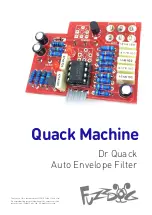
53
Maintenance Procedures
QC Tests
The ORACLE provides a series of QC Tests that allow the user to ensure total system functionality, verified using
Certified Reference Materials, sealed check standard tubes, and short and long term magnet stability.
The QC Tests can be accessed through the “Main Menu” by choosing Maintenance. Each test can be individually
run, and each vary in length of analysis time and the frequency of which they should be performed.
QC Standards
Requires part number 523010 (optional accessory). For best results, please ensure your ORACLE has been
properly setup and has passed all diagnostics tests prior to completing the QC Standards test calibration.
The QC Standards test is designed to help ensure your ORACLE results stay within specification across a range of
fat levels. This test must be calibrated using four standards containing different amounts of oil (nominally 10, 20,
50, and 80 %) which are designed to mimic the fat content of actual food samples. The calibration procedure takes
approximately 90 minutes, and consists of three phases whereby each standard is analyzed three times in order to
obtain the most accurate results.
Each set of standards are designated with a serial number to ensure facilities with multiple standards do not
accidentally use the incorrect standard to produce a false failure. Ensure all four Standard tubes have matching
serial numbers before each analysis.
In addition to the QC Standard Tubes, the Normalization tube provided with every ORACLE must be tested.
To analyze the QC Standards, first ensure all four tubes have been temperature conditioned in the heater block
for a minimum of 1 hour. For initial setup and future maintenance tests, simply follow the instructions on screen
to add each individual tube for a brief analysis, upon which the ORACLE software will label the results as passing
with a green check, or failing with a red X. In the event of a failure, please follow the instructions in this manual for
running the Diagnostic Tests, then contact CEM’s service department.
CRM
Certified Reference Materials (or CRM’s) are considered the gold standard for method validation. These food
samples have been analyzed by several certified laboratories following internationally accredited reference
methods. They represent different matrices and compositions and provide unbiased and accurate compositional
values to confidently verify methods.
CEM recommends running CRM’s periodically on the ORACLE as an internal validation procedure that can used for












































